Are you experiencing retaliation because you reported or opposed fraudulent, illegal or unsafe activities by your employer? If so, you may be able to sue your employer for compensatory damages, reinstatement, other remedies, and in some cases punitive damages with help from our experienced whistleblower retaliation lawyers here at The Howley Law Firm in New York.
Retaliation against whistleblowers is illegal. Federal and New York State laws give you the right to sue for damages and other remedies if you have been subjected to termination, demotion, reduced pay, exclusion from meetings, or other adverse employment actions because you blew the whistle on illegal, fraudulent or unsafe practices. These protections apply whether you are an employee or an independent contractor.
Don’t let an employer who retaliates against you get away scot-free. Our whistleblower retaliation lawyers in New York can help you get justice and compensation. Call The Howley Law Firm now at (212) 601-2728 for a free and confidential case review.
What Is a Whistleblower Under New York Law?
A whistleblower is someone who opposes, reports, or threatens to report a company’s illegal or fraudulent conduct. Federal and New York State laws protect whistleblowers from retaliation and ensure they can speak out without the threat of suffering negative consequences, such as job loss. If an employer retaliates against you for blowing the whistle on them, you could sue them and recover damages.
The primary whistleblower retaliation laws are the state and federal False Claims Acts, and New York Labor Law Sections 740 and 741. These laws protect employees who oppose, disclose, or threaten to disclose activities, policies, and practices of an employer that are illegal, fraudulent, or create a danger to public safety. Additionally, whistleblower law protects employees who provide information or testify before a public body investigating such violations.
Each of the laws is slightly different in terms of the type of whistleblowing it protects and the types of damages a whistleblower can recover for retaliation. You should consult with our experienced whistleblower lawyers to find out which laws protect you.
The state and federal False Claims Acts protect whistleblowers who report or try to stop a company from filing false claims for reimbursement from the government. The most common type of fraud involves the submission of false claims to Medicare and Medicaid, but whistleblowers who oppose or report false claims to other government programs are also protected from retaliation.
Section 740 of the New York Labor Law protects whistleblowers who disclose or threaten to disclose practices that they reasonably believe violate laws, rules, or regulations, or pose a substantial danger to public health or safety. It also protects employees who object to or refuse to participate in any such activity, policy or practice. And it protects employees who provide information to or testify before any public body conducting an investigation into such practices.
Section 741 of the New York Labor Law provides additional protections for healthcare workers. It prohibits retaliation against healthcare workers who disclose or threaten to disclose practices that they reasonably believe constitute improper quality of patient care or workplace safety. Employees are protected for objecting to or refusing to participate in such activities. An employer may not retaliate against a healthcare worker who reports or threatens to report such activities to supervisors, public bodies, news media outlets, or on public social media forums.
How to Qualify as a Whistleblower
To qualify as a whistleblower, you must:
-
- Oppose, Report, or Threaten to Report: You are protected as a whistleblower only if you oppose, report, or threaten to report conduct that is illegal, fraudulent, or poses a significant threat to public health or safety.
- Disclose the Threat: You must disclose or threaten to disclose information about the illegal, fraudulent, or unsafe activities to a supervisor or public body.
- Reasonable Belief: You must have a reasonable belief (not simply a speculation) that an employer’s activity, policy, or practice violates a law, rule, or regulation.
Your Rights as a Whistleblower
Whistleblowers may not be terminated or otherwise retaliated against for blowing the whistle. Significant amendments to New York’s whistleblower laws expanding the rights of whistleblowers came into effect in 2022. The amended laws cover independent contractors and employees who blow the whistle on any activity, policy, or practice they believe violates a law or regulation.
Previously, employees only enjoyed protections if they reported actual violations of law that included a significant and specific danger to the public or healthcare fraud. Under the amended laws, you no longer must prove that an employer violated a specific law. You only need to prove that you “reasonably believe” that such a violation occurred.
The amendments also expand the types of damages whistleblowers can recover when suing their employers. Relief can include reinstatement, compensation for lost wages and benefits, civil penalties up to $10,000, punitive damages, attorney’s fees, and more.
You Could Sue an Employer for Illegal Whistleblower Retaliation
If you opposed or reported violations or illegal actions and an employer retaliated against you, you could sue them and recover damages. Here are some examples of an employer’s unlawful retaliation that could qualify for a lawsuit:
-
- Demotion or Termination: Firing or demoting (reducing rank or job responsibilities) you for reporting illegal activities or violations.
-
- Changes in Job Assignments: Moving you to a less desirable position or location or increasing your workload to an unreasonable level as punishment for whistleblowing.
-
- Reduced Salary and Benefits: Lowering your pay or reducing benefits after you report violations, such as canceling your health insurance, stopping retirement plan contributions, and other retaliatory acts.
-
- Hostile Work Environment and Harassment: Allowing or encouraging a hostile work environment or subjecting you to verbal or physical harassment due to your whistleblowing.
-
- Exclusion: Excluding you from meetings and work activities.
This list is not exhaustive. If you have experienced any of these or other retaliatory practices after blowing the whistle on an organization, contact The Howley Law Firm promptly to protect your rights. Our whistleblower retaliation lawyers in New York can determine whether you have legal grounds to file a lawsuit.
Compensation in New York Whistleblower Retaliation Lawsuits
You could qualify for compensatory and punitive damages if you were wrongfully terminated or suffered other negative consequences due to blowing the whistle on an employer. Here are some examples of damages available with a whistleblower retaliation lawsuit in New York:
-
- Reinstatement: The court may order your employer to reinstate you to your former or an equivalent position.
-
- Back Pay: Back pay compensates you for lost wages and benefits from the retaliatory action to the date of judgment or settlement. Depending on your circumstances, back pay may compensate your for salary, bonuses, and benefits you would have earned had you not been wrongfully demoted or terminated.
-
- Front Pay: Front pay may be awarded in certain circumstances, such as when reinstatement is not an option. Front pay typically compensates you for the loss of future earnings due to retaliation.
-
- Compensatory Damages: If you suffered emotional distress, humiliation, and other non-economic damages due to retaliation, you could qualify for additional compensatory damages.
-
- Civil Penalty: You could qualify for a $10,000 civil penalty against employers who retaliate against whistleblowers. This penalty is intended reinforce whistleblowers’ protected status and discourage employers from retaliating.
-
- Punitive Damages: If your employer’s actions were particularly egregious or malicious, you could receive punitive damages. Punitive damages are intended to punish the employer and deter similar future conduct.
-
- Attorney’s Fees and Legal Expenses: As a whistleblower, you may be awarded attorney’s fees and costs associated with bringing the lawsuit, such as legal fees, court costs, and other expenses.
-
- Economic Losses: If you win your lawsuit, you may receive reimbursement for out-of-pocket expenses that resulted from retaliation, such as job search costs or moving expenses.
How to Sue Your Employer for Retaliation
Winning a whistleblower retaliation case in New York can be challenging and requires compelling evidence. Here’s how to prove such a case with the help from our whistleblower retaliation lawyers:
-
- Prove Your Protected Activity: To win a whistleblower retaliation lawsuit, you must have opposed, reported, or threatened to report illegal activity, violations of law, or unsafe practices internally to a supervisor or other responsible person at the company or externally, such as to a government agency.
- Show Your Employer’s Knowledge: To win your case, you must show that your employer was aware of your whistleblowing actions. Gather any emails, memos, or witness statements to prove that your employer knew that you are a whistleblower.
- Demonstrate Your Employer’s Adverse Action: You must provide evidence of an employer taking retaliatory action against you after becoming aware of your whistleblowing. Such adverse actions can include termination, demotion, salary reduction, harassment, negative performance reviews, and others.
Filing a Lawsuit for Whistleblower Retaliation
The whistleblower laws are extremely complex, and there are many traps for those who are not experts. In order to protect your rights, you should consult an experienced whistleblower attorney when filing a retaliation lawsuit against an employer. They can help you gather the necessary evidence and documentation, such as emails, performance reviews, and witness statements, which can demonstrate the employer’s retaliatory actions.
Your lawyer can help you prove that you engaged in protected whistleblowing activities and that your employer knew of these actions. This can involve gathering proof of your reporting illegal activities, violations of laws, or unsafe practices internally to a supervisor or externally.
Once you have hired an attorney and gathered evidence, your attorney will help you decide where and how to file your complaint. Depending on your particular facts and circumstances, you will need to decide whether to file with an administrative agency, in state court, or in federal court. This type of decision requires not only a knowledge of the law, but strategic considerations requiring advice from a very experienced whistleblower lawyer.
Do not delay. The statutes of limitations for whistleblower retaliation claims are often very short, and you will need time to prepare your case.
The Howley Law Firm Fights for Whistleblowers
If you experienced unlawful retaliation at work after making a whistleblower complaint, you don’t have to stand for it. Whistleblowers are crucial for defending our nation’s laws and regulations and rightfully protected by New York State and federal law. The Howley Law Firm’s experienced New York whistleblower retaliation lawyers can help you get justice and compensation if an employer illegally retaliated against you.
After years of insight gained by defending multinational corporations as a partner in one of the largest corporate law firms in the country, John Howley, Esq. founded this law firm to give executives, professionals, and employees the same high-quality legal representation that powerful companies receive. Let us put our experience to work for you. We can help you stop fraud, recover damages, and protect your reputation and career.
Don’t delay seeking legal advice, as the time to file a case is limited. Call The Howley Law Firm at (212) 601-2728 today to discuss your case.
FAQs – Ask a New York Whistleblower Retaliation Lawyer
When should I file my New York whistleblower retaliation claim?
Under Section 740, you have up to two years from the date of the retaliatory action to file a lawsuit against your employer. However, depending on your case, the statute of limitations may be longer or shorter. This is why it is critical that you consult promptly with an experienced whistleblower retaliation lawyer in New York. They can protect your rights and ensure that you’re observing all critical filing deadlines.
The Howley Law Firm is here to help. If you experienced retaliation due to reporting or complaining about illegal conduct, our New York whistleblower retaliation lawyers can protect your rights and pursue the compensation you deserve. Call us today at (212) 601-2728 to determine whether you have a case.
How much does a New York whistleblower retaliation attorney charge?
Attorney’s fees can vary depending on the complexity of your case and the attorney’s experience, skill, and reputation. Some attorneys charge an hourly rate, meaning you pay for the time they spend working on your case. Hourly fees can amount to several hundreds of dollars per hour, and you will have to pay the attorney whether you win or lose.
The Howley Law Firm works on contingency. When we agree to take your case, you won’t owe us any fees unless you win. Moreover, if you win your case, the other side may be ordered to pay for your attorney’s fees and legal expenses, meaning you may not have any attorney’s fees to pay.
What is the average settlement in whistleblower retaliation claims in New York?
No two retaliation claims in New York are the same. Moreover, settlement details are typically confidential, making it challenging to calculate an average.
Final settlement amounts usually vary depending on the victim’s damages and the size of the employer. For example, a whistleblower recovering a settlement from a global corporation may be entitled to a six-, seven- or even eight-figure award, while an individual suing a small company may only recover in the five- or lower six-figures.
To determine what you might be able to recover in a whistleblower retaliation case, call us at (212) 601-2728 to schedule a consultation with an experienced whistleblower lawyer. We will listen to what happened, consider all the factors, and advise you on what is possible.




